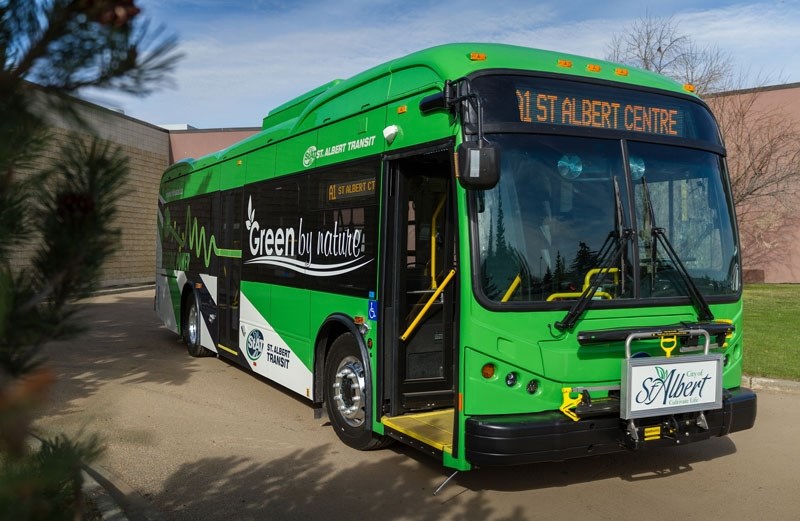St. Albert is receiving provincial recognition thanks to three battery-powered electric buses.
The province has not yet officially released its list of recipients for the Minister's Awards for Transportation Innovation, but St. Albert transit director Kevin Bamber told the Gazette last week the province has already informed the city it will receive the award for the environmental innovation category when awards are officially presented in March.
The city's electric bus fleet is set to expand to seven by the time summer rolls around and is already saving the city money.
"(The award) tells me that the province at least thinks we're moving in the right direction, and putting money where we think it's going to make the most difference," Bamber said.
"I think St. Albert is all about protecting the environment and living in harmony with nature – that green lifestyle. This certainly fits along with that."
Mayor Cathy Heron said aside from being cheaper, the environmental advantages of the electric buses are important to note.
"I think (the award) talks about our commitment to our brand and the environment, and how it's important to us," she said.
"It talks about our commitment to local transit and trying to bring in new and innovative technologies."
Most of St. Albert's 60-bus fleet are diesel. The three electric buses currently in operation in St. Albert rolled into the city last May at a cost of $962,000 each, with two-thirds of that paid by the province's GreenTRIP program. They made St. Albert the first place in Canada to use full-sized electric buses as part of their regular transit service.
The city also received federal and provincial funding for its four incoming buses.
Heron said the provincial and federal funding makes the cost-benefit for the buses even more favourable.
"As long as that grant is there, we're going to continue to buy electric buses, and my guess would be that even if the grant was gone, we would still continue down the road of electric buses," she said.
The buses can charge in less than three hours and average 170 kilometres per day. They have 32 seats, compared to the 37 on diesel buses, and operate along the city's normal transit routes.
Bamber said the city had to do some initial upgrades to its electrical infrastructure in order to be able to charge the buses, but after crunching the numbers found the city is already saving money by using the electric buses.
"We're finding a substantial savings in our cost-per-kilometre, compared to the diesel bus," he said.
The city estimates electric buses cost about nine cents per kilometre for fuel, compared to 45 cents per kilometre for diesel buses.
"It's a win all the way around, as I see it," Bamber said.




